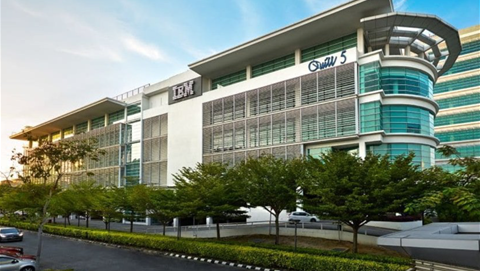A recent AI@Work study conducted by Oracle and Workplace Intelligence across 6,000 employees found widespread dissatisfaction with the current status of the workplace. What has become clear is the migration to remote working catalysed by the global pandemic has not only led to massive negative repercussions in employee motivation, but also brought about a drastic reassessment of careers and traditional ideas of success.
Is this sentiment similar across the different countries in the region? Will employees continue to lose their drive and motivation with hybrid work becoming commonplace?
In a conversation with Shaakun Khanna, Head of Human Capital Management (HCM) Cloud Applications Strategy, Asia Pacific, Oracle, iTNews Asia looks into the impact and significance of the study and asks if AI and technology help or cause a further rift between employers and their staff.
iTNews Asia: A huge negative impact of the pandemic over the last two years has been the loss of morale and disgruntlement among the workforce. What are some of the key observations from the study and what do you think are the implications in shaping the career development of employees in APAC?
A year in lockdown has left the Asia-Pacific workforce feeling lonely, disconnected, and out of control. According to Oracle’s AI@Work 2021 study, 80% of people have been negatively impacted by the last year, with many struggling financially, suffering from declining mental health, and lacking career motivation.
On the bright side, people have used the past year to reflect on their lives and are motivated to make changes. 90% said the meaning of success has changed for them since the pandemic and priorities are shifting from financial gains to work-life balance, mental health, and workplace flexibility. The Asia-Pacific workforce has traditionally been associated with long hours, and for the first time, people in our part of the world have placed new meanings to success like our Western counterparts.
Lastly, employees across the region are hungry for new skills and turning to technology for help, with 89% of people wanting technology to help define their future. However, people believe that humans still have a critical role to play in career development, with 45% saying humans are better at providing support by offering advice based on personal experience. Empathy within the workplace will remain a strong quality, especially for leaders. Technology’s role is to support and augment this process; for example, by alerting them when employees are overworked and spurring leaders to take action and remind employees to take necessary breaks.
iTNews Asia: Are the findings generally similar in the more than 6,000 respondents across the 6 Asia Pacific countries? If they are different, why do you think are the reasons this is so?
Findings are generally similar with only a few significant differences in India and Japan. However, when we compare Asia-Pacific with Global numbers, there a couple of findings that stood out.
82% of people in Asia-Pacific would make life changes based on robot recommendations, while this number is only 75% globally. Moreover, 88% in Asia-Pacific believe robots can support their careers better than a human, while this number is only 82% globally.
This is our fourth consecutive year for our annual AI@Work study, and it is our observation that Asia-Pacific tends to fare much higher in questions around technological adoption. In fact, in a survey done in 2019, we found that 83% of Singaporean workers trust robots more than their managers, so there is a consistent trend across the region over the years. This higher receptivity to technology may be due to the significant increase of smartphone usage in key markets like India and China.

People are realising the potential of emerging technology and the role it could play in transforming their careers. AI-enabled HR-Tech can be used as a powerful tool to empower employees and organisations to make data-driven decisions that are free of human error, quick, transparent, and dependable, allowing them to focus on other tasks that require extensive human interaction.
- Shaakun Khanna, Head of Human Capital Management (HCM) Cloud Applications Strategy, Asia Pacific, Oracle
iTNews Asia: Remote working has become commonplace due to the pandemic. Yet many employees seem to have experienced a decline in work -life balance despite not being in the office physically. Your study highlights that many employees are now feeling disconnected and lonely. How much of this dissatisfaction can be attributed to technology? To what extent has technology contributed to the decline of mental health?
We tend to underestimate the importance of human interactions in physical space and proximity, which is a major contributor to people feeling disconnected and out of control. People are feeling detached from their workplace because of the informal atmosphere and the lack of mentors to do interact with socially. Second, the pandemic has provided an opportunity for people to examine their vulnerabilities more closely, resulting in a kind of spiritual realisation – hence the feelings of being disconnected and lonely.
From our study, we found instead that people are realising the potential of emerging technology and the role it could play in transforming their careers. AI-enabled HR-Tech can be used as a powerful tool to empower employees and organisations to make data-driven decisions that are free of human error, quick, transparent, and dependable, allowing them to focus on other tasks that require extensive human interaction.
iTNews Asia: Can technology be used to bridge the gap between workers who are physically present at work and those who are not?
We have all experienced technology’s significant role over the past year in facilitating remote collaboration and workplace flexibility. Technology can help bridge the gap by creating collaborative spaces, opportunities to connect, and helping workers who may have never met physically feel closer to one another through shared experiences.
For example, enterprise networking applications allow employees to connect with their colleagues through personal updates and network with co-workers with common expertise and interest, helping them feel more attuned with those they may have never met.
The future of work is changing and workers no longer have to be physically present in offices to be effective at the work they do, but employers need to be intentional about putting in place resources to help workers connect, grow and thrive, alongside the rest of the organisation.
iTNews Asia: Apart from implementing AI, how can employers use technology to support their workers in terms of professional development? How can they get better control?
Employees are already very much willing to have technology help them develop professionally. We see that 61% in Asia-Pacific are more likely to stay with a company that uses advanced technologies like artificial intelligence (AI) to support career growth. Moreover, a majority believes that robots can support their careers better than a human by giving unbiased recommendations, delivering resources tailored to their current skills or goals or quickly answering questions about their career. This sentiment also applies beyond professional development, with 82% of people would make life changes based on robot recommendations.
Employers can make use of platforms that allow personalised learning for their employees, providing course and content recommendations for employees to upskill, that are in line with their current role and career goals. Technology can also be used to match workers to suitable mentors within the organisation to help them develop further professionally.
iTNews Asia: For employees, what kind of IT skills can they consider upgrading?
Our fourth AI@Work survey shows that investment in skills and career development is now a key differentiator for employers in today’s working environment. Organisations need to double down efforts to help employees identify and develop new skills and provide their workers with personalised career journeys to put them in control of their careers once again. Employees themselves also need to take charge of their own learning and growth to stay ahead.
There is no one specific skillset that employees should or need to progress towards as everyone’s career path is different. Depending on the employee’s next career goal or aspiration, they can make use of technology to provide data-driven recommendations on what skillsets they should acquire, what qualifications and course they should take to progress, and who they can reach out to for mentorship and advice.









